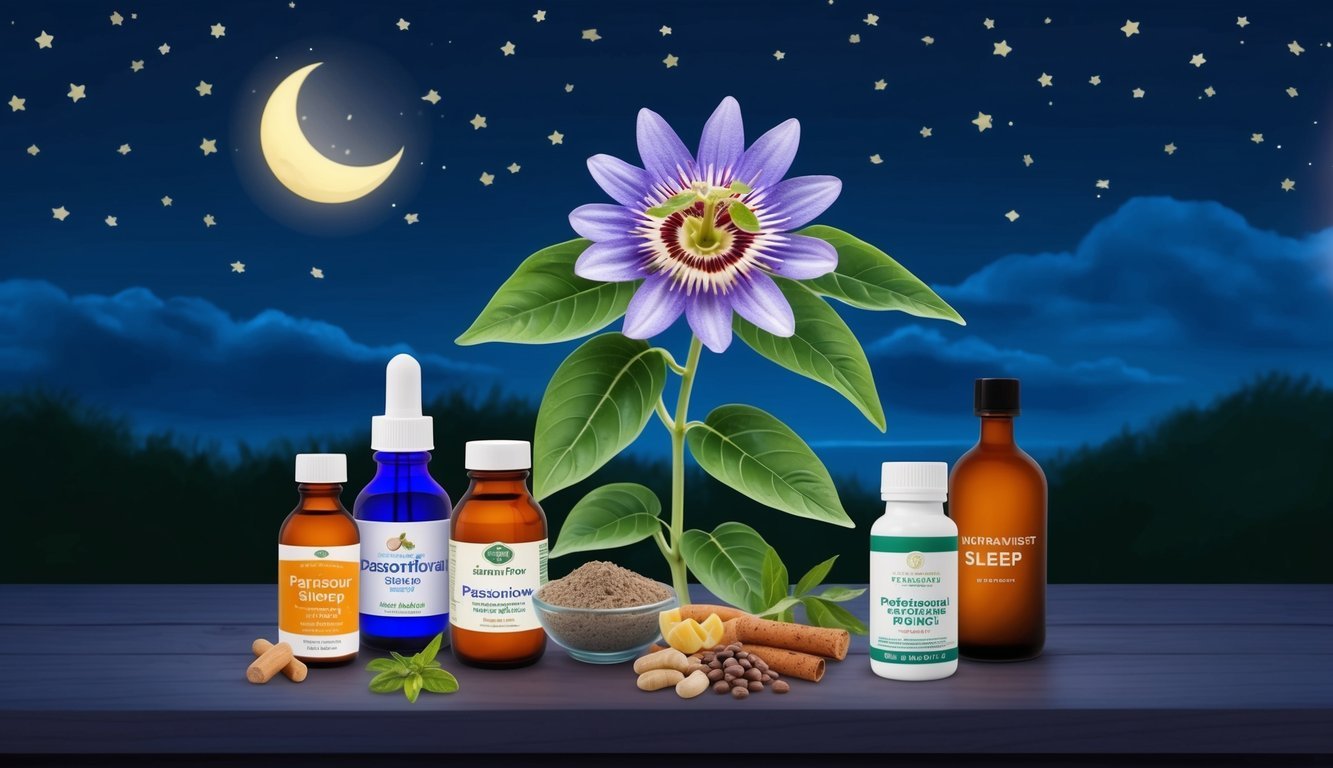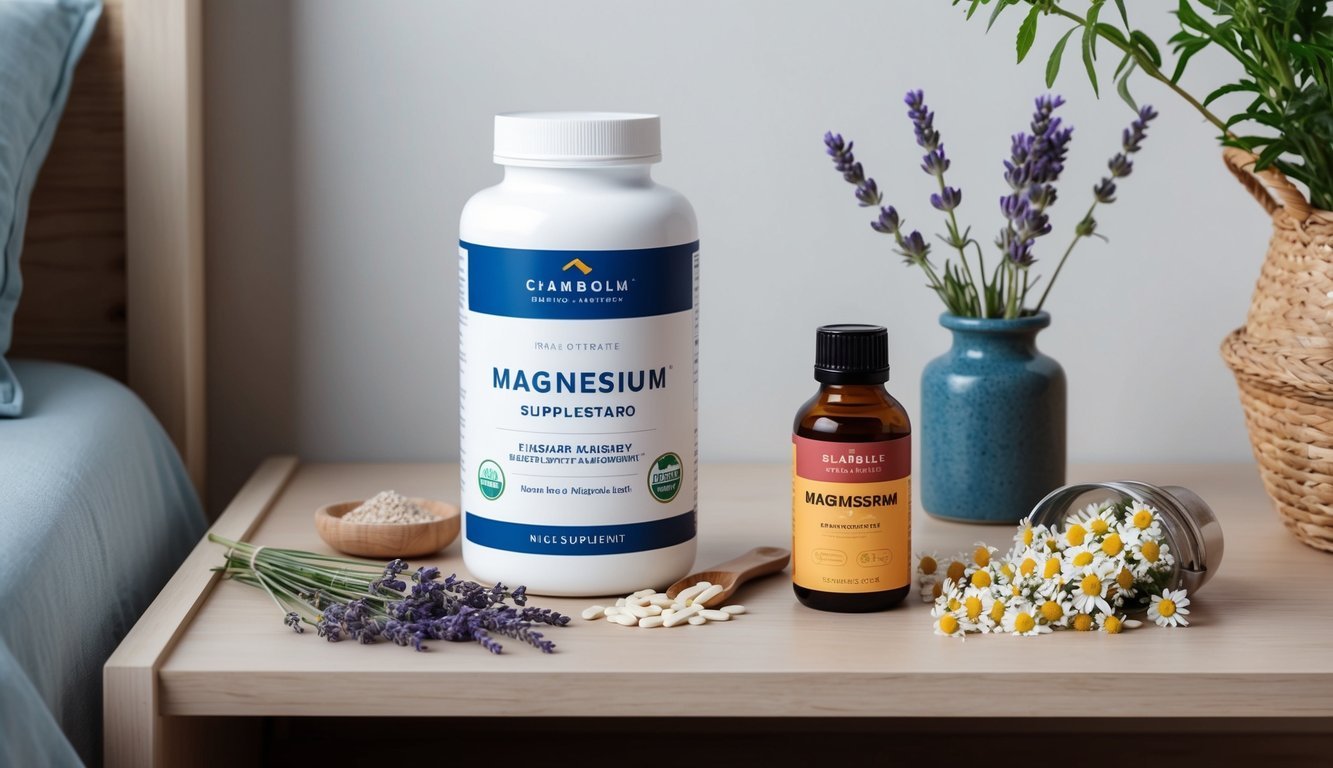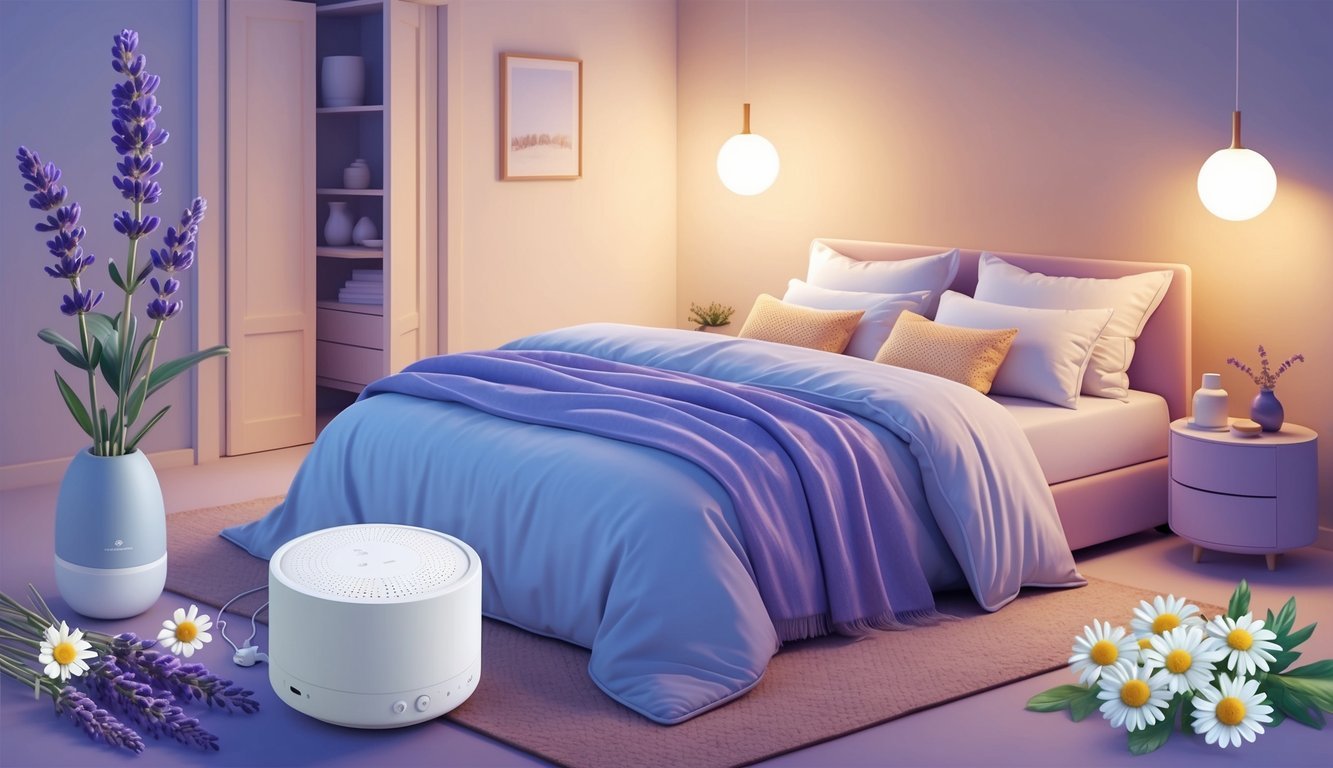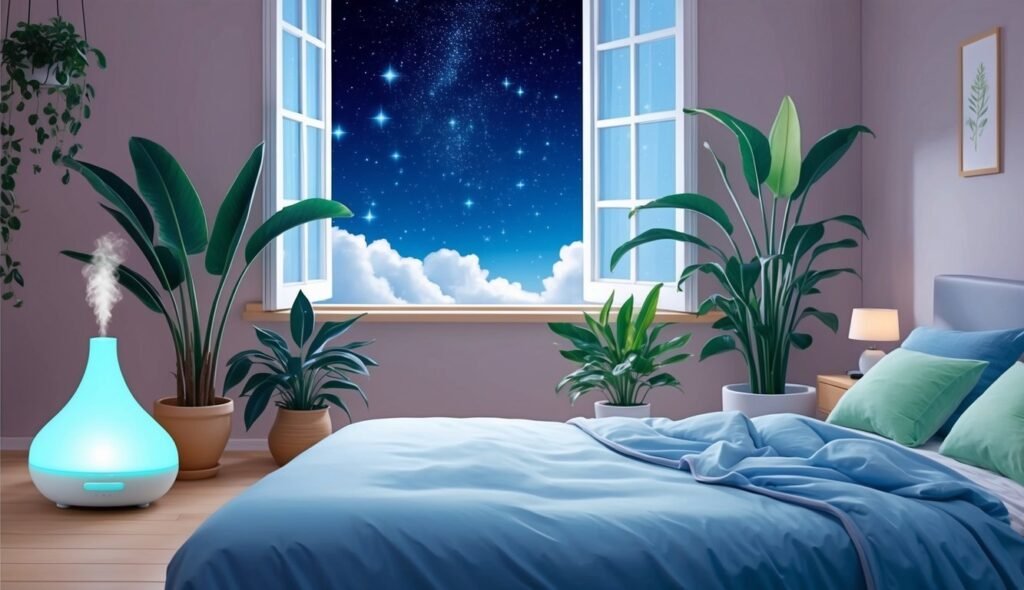Sleep is essential for both physical and mental well-being, yet many of us struggle to achieve the quality rest we need.
With busy schedules and daily stressors, finding effective ways to enhance sleep can feel daunting. Exploring natural remedies offers a holistic approach to improving sleep quality without relying solely on medications.

Throughout my journey, I’ve discovered various natural remedies that have made a difference in my sleep routine.
From simple lifestyle changes to calming herbal options, these remedies not only help me fall asleep faster but also ensure I wake up feeling refreshed.
It’s amazing how small adjustments can lead to significant improvements in how well I sleep.
1) Valerian Root
I’ve come across valerian root as a popular natural remedy for sleep issues.
This herb has been used for centuries to promote relaxation and aid in better sleep quality.
From my research, it seems that taking valerian root in doses of about 450-1,410 mg daily for 4-8 weeks may help improve sleep.
I appreciate that it comes in various forms, like tea, capsules, and tinctures.
While valerian root may reduce anxiety and improve sleep, I’ve noted that it’s not recommended for long-term insomnia treatment.
The safety of valerian root makes it appealing, but it’s worth mentioning that it isn’t closely monitored by the FDA like prescription medications.
Some studies suggest valerian root can work well alongside other natural remedies.
The long-term effects of this herb are still not fully understood, so it’s good to stay informed and cautious.
Chamomile Tea
Chamomile tea has been a go-to for me when I need a little help winding down.
This herbal tea is known for its calming effects, mostly due to a compound called apigenin.
It binds to certain receptors in the brain, which can promote relaxation.
Brewing a cup is simple.
I usually steep one tea bag or a couple of teaspoons of dried chamomile flowers in hot water for about 5 to 10 minutes.
If I want a stronger flavor, I might add an extra tea bag or let it steep a bit longer.
I find that drinking chamomile tea in the evening helps create a soothing bedtime routine.
It’s like a signal to my body that it’s time to relax and prepare for sleep.
Many studies suggest it can improve sleep quality and may even help with insomnia symptoms.
It’s worth noting that while chamomile is beneficial for most, results can vary.
Some people find it incredibly effective, while others might experience only modest improvements.
3) Lavender Essential Oil
I’ve found that lavender essential oil is a go-to for improving sleep quality.
The calming scent really helps reduce my anxiety, making it easier to wind down at night.
One of the best ways to use lavender oil is to mix a few drops with a carrier oil, like coconut or almond oil.
I like to massage it onto my temples and wrists before bed.
It feels soothing and smells wonderful.
Another option is to create a lavender pillow spray.
Just dilute some lavender oil in water and spray it on your pillow.
It creates a relaxing atmosphere that can help signal to my body that it’s time to sleep.
I’ve also enjoyed a warm bath with lavender oil added to the water.
Soaking for about 15-20 minutes not only relaxes my muscles but also fills the bathroom with that lovely scent.
The studies show that lavender can improve sleep quality and duration.
It’s definitely worth considering if you’re looking for natural ways to enhance your sleep routine.
4) Passionflower Extract

I’ve found passionflower extract to be an intriguing option for improving sleep quality.
Traditionally used in herbal medicine, it’s known for its calming effects.
This plant seems to help reduce anxiety, making it easier to slip into sleep.
It contains compounds that interact with the GABA system, promoting relaxation.
From what I’ve read, it might also cause drowsiness, so it’s best to use it in the evening or before bed.
While side effects are rare, I’ve heard some people report an irregular heart rate.
Though more extensive clinical studies are needed, passionflower looks promising for those seeking natural sleep aids.
5) Magnesium Supplement

I’ve found that magnesium can really help improve sleep quality.
This mineral plays a crucial role in regulating neurotransmitters that calm the mind and promote relaxation.
From what I’ve read, experts suggest taking around 350 milligrams of magnesium for sleep.
It’s commonly found in foods like nuts, leafy greens, and whole grains, but a supplement can be a convenient option for those who need a boost.
I’ve tried supplements that blend magnesium with other calming ingredients, like jujube fruit and PharmaGABA.
Taking these about one to two hours before bed has worked well for me.
It’s important to remember to consult with a doctor before starting any new supplement.
Everyone’s body is different, and what works for me might not work for you.
Taking the right approach can make a difference in how well I sleep.
6) California Poppy

I’ve recently been exploring California poppy as a natural remedy for sleep improvements.
This herb has a rich history of use, especially among Native Americans, for its calming effects.
It’s known for its bioactive compounds like protopine and allocryptopine, which interact with GABA receptors in the brain.
This action helps promote relaxation and can ease anxiety, making it easier to wind down before bed.
I’ve found that California poppy can be taken in multiple ways.
I prefer brewing herbal tea, using about a teaspoon of dried California poppy in hot water for around 10-15 minutes.
Sipping on this in the evening feels soothing and prepares me for sleep.
Some studies highlight its effectiveness for those struggling with sleep issues and anxiety.
In one study, participants reported significant relief from anxiety after taking California poppy extract.
While it’s important to be mindful of dosages, I enjoy using California poppy as part of my bedtime routine.
It’s become a gentle ally in my quest for better sleep.
7) GABA Supplements

I’ve explored GABA supplements as a natural way to improve sleep quality.
GABA, or gamma-aminobutyric acid, is a neurotransmitter that helps calm the brain.
I often find that taking GABA before bed can promote relaxation and make it easier to drift off.
Recommended dosages vary, typically ranging from 100 mg to 1000 mg, which I choose based on how I feel.
Starting low and gradually increasing seems wise.
Research suggests that GABA can be beneficial for reducing stress and enhancing sleep.
It works by increasing the activity of GABA receptors in the brain, helping me feel more relaxed.
Combining GABA with magnesium is another strategy I’ve found effective.
Magnesium acts as the “anti-stress mineral,” supporting GABA’s calming effects.
Of course, I always consult with a healthcare professional before adding any new supplement to my routine.
Each person’s response can differ, so it’s important to find what works best for me.
Benefits of Natural Sleep Remedies

Natural sleep remedies can lead to significant improvements in both sleep quality and overall health.
By addressing underlying issues and adopting gentle, holistic practices, I can create an environment more conducive to restful sleep.
Incorporating relaxation techniques such as meditation and deep breathing can be highly effective in improving sleep quality.
Additionally, maintaining a consistent bedtime routine and reducing screen time before bed can help regulate the body’s internal clock.
These small adjustments contribute to a more restful and rejuvenating night’s sleep.
Impact on Sleep Quality
Using natural sleep remedies like magnesium or herbal teas can greatly enhance sleep quality.
Magnesium, for instance, helps relax my nervous system and can positively affect my ability to drift off at night.
Herbs such as chamomile and passionflower have calming properties.
Drinking a cup of chamomile tea before bed provides a warm, soothing routine that signals my body it’s time to rest.
Incorporating practices like yoga or meditation into my daily routine can also significantly improve how soundly I sleep.
They help reduce stress and anxiety, both major culprits in sleep disturbances.
Supporting Overall Health
Natural sleep remedies not only improve sleep but also support overall health.
For example, good sleep is linked to better immune function.
When I sleep well, my body is better equipped to fight off illnesses.
Additionally, adequate sleep can improve my mental clarity and emotional stability.
This can lead to enhanced productivity and better relationships.
Using natural methods often means fewer side effects compared to conventional sleep aids.
This means I can wake up feeling refreshed without the grogginess that sometimes accompanies sleeping pills.
With these approaches, I make strides toward not just better sleep, but a healthier lifestyle overall.
Building a Sleep-Friendly Environment

Creating a sleep-friendly environment is all about ensuring peace and comfort in your space.
It involves making intentional choices to enhance relaxation and minimize disruptions.
Here’s how I go about it.
Creating a Relaxing Atmosphere
First, I focus on the overall atmosphere of my bedroom.
I keep the room cool, ideally between 60 to 67°F (15 to 19°C), which helps signal my body that it’s time to sleep.
Next, I dim the lights an hour before bedtime.
This helps promote the natural sleep hormone melatonin.
I also prefer using soft, warm lighting, like a bedside lamp with a dimmer switch.
In addition, I surround myself with calming colors.
Soft blues, greens, or earthy tones really set the mood for relaxation.
Adding some cozy textiles—think plush blankets and soft pillows—invites comfort.
I like to include a few plants for air purification and a touch of nature.
Reducing Noise and Light Pollution
Minimizing noise and light is crucial for uninterrupted sleep.
I start by addressing noise sources.
Using earplugs or a white noise machine can create a soothing sound backdrop.
I even utilize a fan for consistent, gentle noise.
Next, I tackle light pollution.
Blackout curtains are my go-to; they completely block out outside light.
If that’s not feasible, I use an eye mask to keep everything dark.
Lastly, I consider my devices.
I keep screens out of the bedroom and enforce a no-phone policy an hour before bed.
This helps me unwind without the distractions of notifications and blue light.

